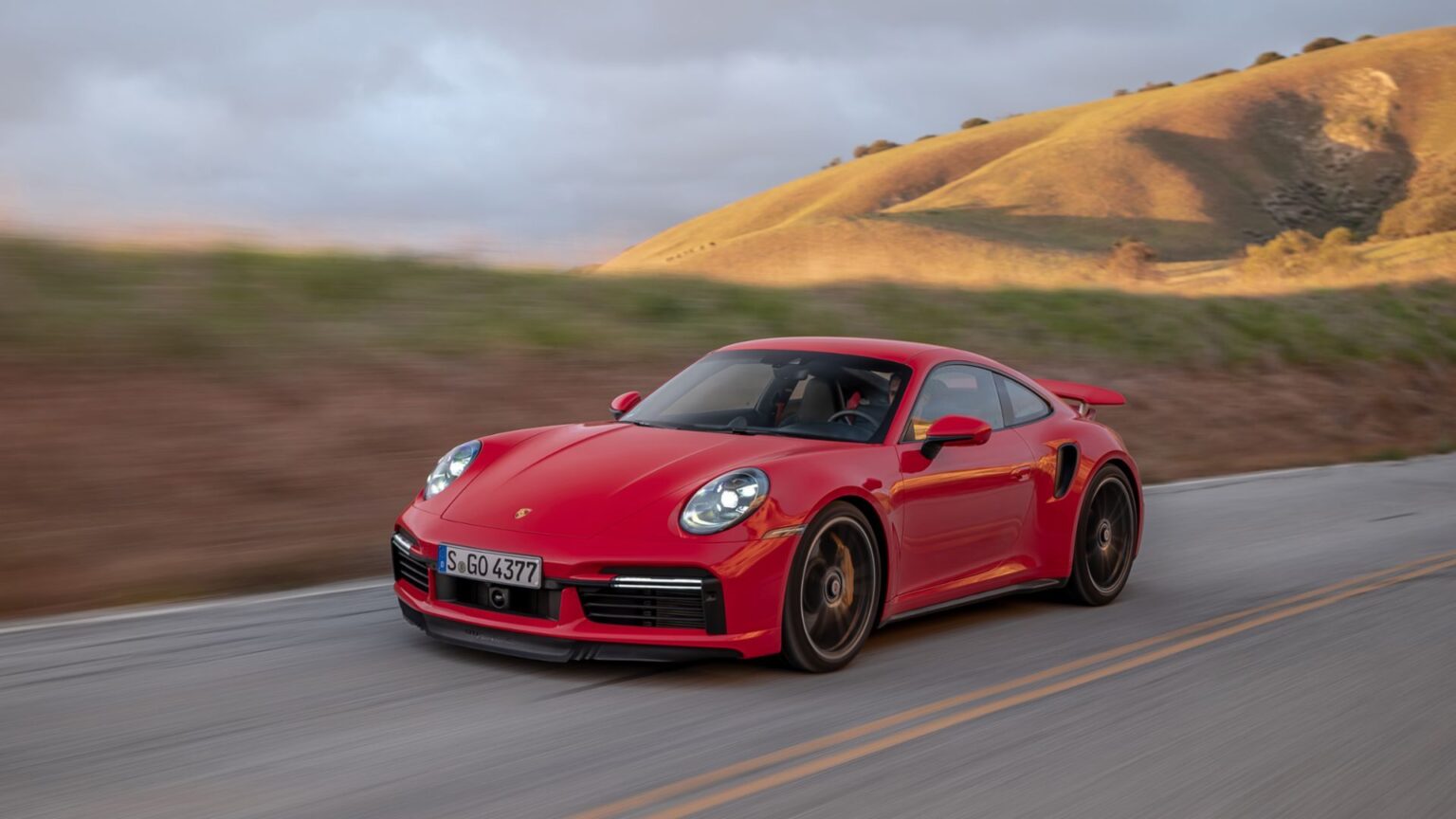has officially confirmed that the iconic 911 Turbo S will receive hybrid power for the first time in its 50-year history, marking the most significant transformation of the model since turbocharging arrived in 1974. CEO Oliver Blume announced during the company’s half-year earnings call that the 992.2-generation Turbo S will debut before the end of 2025, promising it will be “the best 911 ever.”
The hybrid system, based on the T-Hybrid technology already proven in the GTS model, is expected to push the Turbo S beyond 700 horsepower while maintaining the driving character that made the nameplate legendary. This isn’t just another mild refresh – it represents Porsche’s commitment to keeping the 911 Turbo competitive in an ever-evoloving market.
The stakes couldn’t be higher for Porsche, as the company reported a dramatic profit decline from 2.2 billion euros to just 718 million euros in the first half of 2025. The hybrid Turbo S is positioned as a flagship model that could help reverse this trend through what Blume calls an “expansion of halo vehicles” – exclusive, high-performance models that command premium prices.
Media reports suggest pricing could reach $255,000, based on rumored European pricing of €225,000, representing a significant increase over the current model’s $230,400 starting price. The timing is crucial, as Porsche faces intensifying competition from hybrid supercars like the McLaren Artura and electrified American muscle cars such as the Chevrolet Corvette E-Ray.
Racing Technology Meets Road Car Engineering
The T-Hybrid system draws directly from Porsche’s championship-winning 919 Hybrid endurance race car, which dominated Le Mans from 2015 to 2017. Unlike traditional plug-in hybrids, this system focuses purely on performance enhancement rather than electric-only driving range. The technology centers around a 54-horsepower electric motor integrated within the eight-speed PDK transmission, paired with an electrically-assisted turbocharger that spools up to 120,000 rpm. This eliminates the turbo lag that traditionally plagued high-performance turbocharged engines, delivering immediate throttle response that rivals naturally aspirated engines.
The system’s 1.9-kilowatt-hour battery pack, supplied by Varta through Porsche’s recent acquisition of V4Drive GmbH, stores energy recovered during braking and coasting. Porsche has invested heavily in battery production capabilities, expanding workforce to 375 employees across manufacturing sites in Ellwangen and Nördlingen. The entire hybrid system adds only 103 pounds to the GTS model, suggesting the Turbo S weight penalty will be similarly modest despite the additional all-wheel-drive hardware.
Market Disruption And Performance Implications
The hybrid Turbo S represents more than incremental improvement – it could fundamentally disrupt the supercar hierarchy. Current projections suggest total system output approaching 710 horsepower, which would place it squarely in hypercar territory previously dominated by limited-production exotics. This power increase comes at a critical time, as the outgoing 992.1 Turbo S, while impressive at 640 horsepower, faces increasingly stiff competition from newer rivals.
The hybrid system’s low-end torque delivery could transform the driving experience, providing instantaneous acceleration that traditional turbocharged engines struggle to match. In the GTS application, the hybrid system reduced 0-60 mph times by 0.3 seconds and improved Nürburgring lap times by an remarkable 8.7 seconds. Applied to the more powerful Turbo S platform, these improvements could establish new benchmarks for road-legal performance cars. The technology also positions Porsche to meet increasingly stringent emissions regulations while actually increasing performance – a rare engineering achievement in today’s regulatory environment.
Read the full article here


